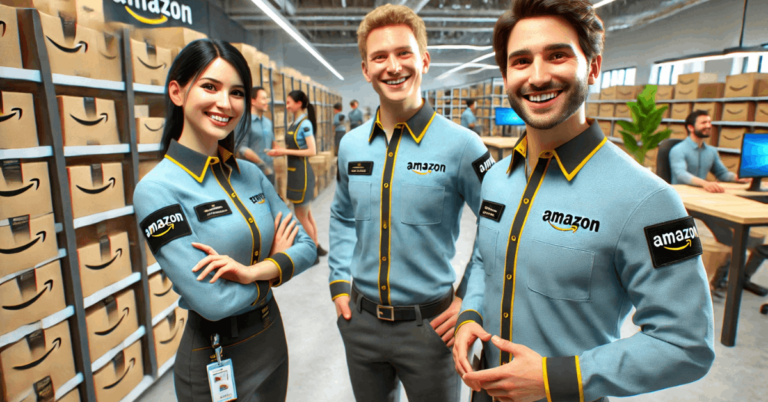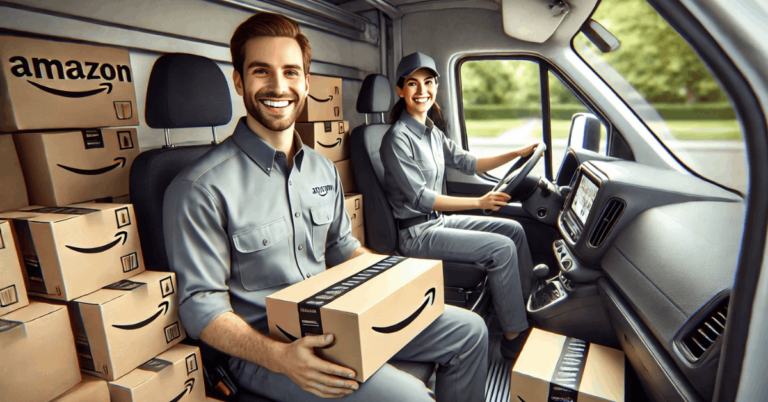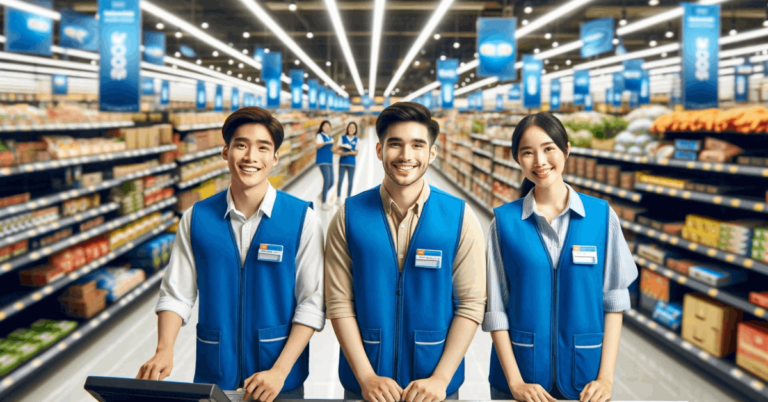Food delivery jobs across Europe have emerged as a lucrative, flexible option for individuals seeking extra income or full-time work. Whether you’re a student, freelancer, expat, or gig worker, delivering food offers you the freedom to work on your own terms while tapping into the rising demand for convenience.
With low entry barriers, competitive pay, and a high degree of flexibility, these roles have become increasingly popular. This article explores why food delivery jobs are profitable, how to get started, and the best strategies to maximize your earnings — all while maintaining a healthy work-life balance.
Why Food Delivery Jobs Are Profitable in Europe
The gig economy has seen explosive growth in Europe, and food delivery is at its forefront. Consumers increasingly rely on delivery services, especially in urban areas where convenience is king. This shift in behavior has created a steady stream of opportunities for couriers across the continent.
High Demand Across Major Cities
From Berlin to Barcelona, cities across Europe have witnessed a significant rise in food delivery orders. The growing trend of online ordering, especially post-pandemic, has made this service an essential part of daily life. This translates to more delivery requests and consistent job availability for couriers.
Competitive Pay Structures
Most platforms use a dynamic pay model that includes:
- Base delivery fee
- Distance-based pay
- Surge pricing during peak hours
- Performance-based incentives
This structure allows motivated couriers to earn well above minimum wage, especially during high-demand periods.
Tipping Culture Boosts Income
In countries like Germany, the Netherlands, and France, tipping is common and often generous. Delivering with a friendly attitude and efficient service can easily lead to 10–20% in tips on top of base earnings.
Peak-Hour and Surge Pricing Bonuses
Lunch, dinner, weekends, and bad-weather days often come with bonus payouts. Platforms like Uber Eats and Glovo notify couriers when these high-paying windows are active, making it easier to plan profitable shifts.
Multiple Platform Opportunities
There’s no rule against working for more than one app. Couriers often multiplatform, switching between Deliveroo, Wolt, and Just Eat to find the most profitable orders in real time.
No Income Ceiling
Your earnings are directly tied to your effort. Unlike salaried positions, there’s no income cap — meaning the more you deliver, the more you make.
Flexibility and Work-Life Balance
One of the standout features of food delivery jobs is the autonomy they offer. Whether you’re a university student with evening classes or a parent juggling childcare, this kind of work adjusts to your lifestyle.
Set Your Own Schedule
Work as much or as little as you want — there’s no requirement to clock in at 9 AM. Choose between:
- Full-time shifts for maximum earnings
- Part-time evening or weekend gigs
- Peak-hour only shifts to earn more in less time
No Long-Term Contracts
Most platforms operate on a freelance basis. You’re free to start, pause, or stop work without long-term obligations.
Fit Work Around Your Life
Deliveries can be slotted around classes, freelance work, or personal responsibilities. You control your availability and pacing.
Freedom to Take Breaks
Want to take an afternoon off? Need a few days to rest? With food delivery, there’s no need to ask for permission.
Choose Where You Work
Deliver in neighborhoods you know and prefer. This can reduce stress, increase delivery speed, and improve your experience overall.
Best Food Delivery Platforms in Europe
Europe is home to several popular food delivery platforms, each offering unique advantages for couriers. Whether you’re looking for high-demand zones, better bonuses, or flexible hours, choosing the right app (or combination of apps) can significantly impact your earnings. Here’s a closer look at the top platforms available across the continent:
- Uber Eats operates in major countries like the UK, France, and Germany. It offers flexible shifts, surge pricing during busy periods, and performance-based incentives for high-performing couriers.
- Deliveroo is widely used in the UK, Spain, and France. Known for its scheduled delivery zones, it rewards couriers with bonuses during peak hours and high-demand windows.
- Glovo is especially active in Southern and Eastern Europe. Beyond food, it allows deliveries of groceries and general goods. It’s appreciated for its user-friendly app and multilingual interface, which is great for expats.
- Just Eat operates in countries like the UK, Netherlands, and Belgium. It’s one of the few platforms offering hourly pay in some cities, providing a stable income option for those seeking consistency.
- Wolt is growing fast in Northern and Central Europe, including Finland, Germany, and Poland. It has a strong reputation for reliable earnings, responsive customer support, and flexible scheduling.
Couriers often register with more than one platform to stay busy and choose the highest-paying opportunities available in their area. This multi-platform approach can help maximize both efficiency and income over time.
Tip: Use two or more apps to stay busy during slow periods.
Requirements to Get Started
Food delivery work is one of the most accessible job options in Europe, especially for newcomers or those without formal qualifications.
General Requirements
Getting started with food delivery is simple and accessible for most people.
With just a few essential documents and the right gear, you can begin working quickly.
Here’s what you need to join major platforms and start earning.
- Age: Must be 18 or older
- ID/Passport: Valid government-issued identification
- Smartphone: For accepting and managing deliveries
- Bank Account: For receiving payments
- Transport: Bike, scooter, or car (varies by platform)
For Non-EU Residents
If you’re not from the EU, there are a few extra steps before you can start delivering.
Legal work authorization and local residency are typically required by most platforms.
Make sure you meet these conditions to avoid delays during the registration process.
- Work Permit or Visa: Legal authorization is essential
- Local Residence Address: Often needed during sign-up
Recommended Equipment
Having the right equipment can make your delivery shifts safer, faster, and more efficient. While not always mandatory, these tools improve your performance and comfort on the road. Here are the top items experienced couriers recommend carrying.
- Insulated delivery bag
- Helmet and reflective vest (for safety)
- Power bank (to avoid phone battery issues on long shifts)
Maximizing Earnings as a Food Courier
Earning potential in food delivery varies by location, but strategic couriers can easily boost their income by following best practices.
Focus on Peak Hours
Delivering during:
- Lunch (12 PM – 2 PM)
- Dinner (6 PM – 9 PM)
Weekends and holidays
…means more orders and higher pay.
Choose High-Demand Zones
Stay close to:
- Business districts
- Universities
- Tourist hotspots
- Residential areas during dinner time
Use Multiple Apps
Stay logged in to several platforms to:
- Pick the best-paying orders
- Avoid downtime
- Capitalize on various bonus programs
Plan Efficient Routes
Apps like Google Maps and Waze help you avoid traffic and shorten delivery times, allowing you to complete more orders.
Keep Ratings High
Customer reviews matter. High ratings often unlock:
- Early access to shifts
- Bigger tips
- Priority order matching
- Stay Informed About Bonuses
Track app promos, such as:
- Streak bonuses for consecutive deliveries
- Referral bonuses for bringing in new couriers
- Hourly boosts during new city launches
Upsell Your Service
A friendly smile, timely delivery, and good communication increase the likelihood of better tips and repeat customers.
Challenges to Consider
While food delivery offers freedom and decent income, it also comes with potential downsides. Being prepared helps you navigate them.
Weather Conditions
Rain, snow, and wind make deliveries harder. Invest in:
- Waterproof clothing
- Insulated gloves
- Sturdy tires or gear
Urban Traffic and Delays
Congested roads slow down delivery times. Use:
- Traffic apps
- Backstreet routes
- Efficient parking strategies
Physical Fatigue
Long hours on the road can be tiring. Stay energized by:
- Taking regular breaks
- Staying hydrated
- Stretching between deliveries
App Glitches or Suspensions
Occasional bugs or unfair deactivations happen. Protect yourself by:
- Keeping screenshots of orders
- Contacting support promptly
- Avoiding disputes with customers
Earnings Fluctuate
Delivery volumes vary daily. To balance income:
- Work consistently
- Track your busiest days
- Save a portion during high-earning weeks
Tax and Legal Considerations
As a freelancer or self-employed courier, you’re responsible for managing your taxes and staying compliant with local laws.
Tax Responsibilities
As a self-employed courier, you must register with local tax authorities and report all earnings, including tips and bonuses.
Tracking expenses like fuel, repairs, and gear can help reduce your taxable income legally.
- Register as Self-Employed in your country
- Report all income, including tips and bonuses
- Track your expenses (fuel, maintenance, gear)
VAT and Thresholds
In some countries, earnings above a certain level require VAT registration. Check your national guidelines for details.
Social Contributions
Self-employed workers may need to contribute to:
- Pensions
- Public healthcare
- Unemployment insurance (where applicable)
Insurance and Safety
You may need:
- Health insurance
- Liability insurance
- Theft or accident protection for your vehicle
Visa and Work Permits
Non-EU citizens must ensure their visa permits self-employment. Penalties for working illegally can be severe.
Final Takeaways
Food delivery jobs in Europe are more than just a side hustle — they’re a real, scalable income source that offers unmatched flexibility and independence.
With minimal setup, you can start earning on your own terms, make use of downtime, and control your workload. Whether you’re looking for full-time freedom or part-time pay, food delivery fits the bill.
Ready to ride toward financial freedom? Sign up with your preferred platform and start delivering today.







